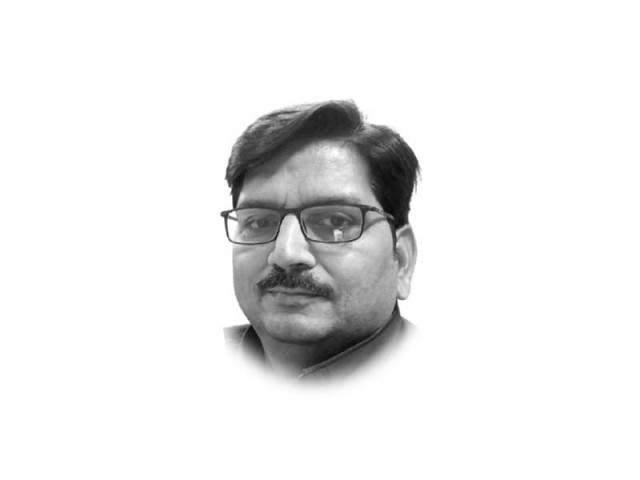Our research milieu versus urgency of problems

Our education system’s labyrinthine complexity and misplaced priorities — that necessitate only the completion of the task and bear no constructive educational output — spawn tinselly academic degrees and ersatz research. Abstract might sound this preamble at first glance but it is based on a tete-a-tete with one of my former students. Mr Z — anonymity is intended to avoid any chastising reaction to his academic career as is the custom in our institutions — is on his research project of M Phil from a top university of our country, notably reputed solely for its research projects.
The city of Kasur is famous for its leather industry and equally notorious for its contaminated potable water. Being himself a resident of Kasur, Mr Z feels the urge to investigate the impact of heavy metals present in the effluence of leather tanneries on different crops and then on human health.
He divulges his disillusionment with the utopian research milieu of the university when his supervisor disclosed that they had no resources for the student to conduct his research on practical lines. Rather, the worthy supervisor initiated Mr Z into the corrupt traditional approaches and practices of research projects, viz how to conduct bogus research and vie for the degree. There was scant availability of facilities and resources in the lab that presented the scene of an archaeological site.
The cancer of higher education in our country is that all the slipshod policymaking hovers upon promoting the quantity of adulterated educational produce as the plethora of research papers churned out and the number of M Phil and PhD students supervised are held authentic metrics for the pay and promotion of the professors.
Mr Z’s passion for research was snuffed out first by denying him any financial help for the research from HEC, and second by misleading him to the path of plagiarism and fake research. The buzzword in the research circles is “apply the software” — to apply statistical software and tools to tamper with the outlook of the existing data and its tabulation.
Upon Mr Z’s insistence on conducting the research practically, he was threatened to stay put at the campus when other students enjoyed the summer vacation, and browbeaten for being “rude” as he didn’t acquiesce to the supervisor’s whims.
The student’s concern for his research is genuine. At present, about 230 leather processing units established in Kasur throw their effluence of heavy metals and toxins into natural water reservoirs (aquifers and the Sutlej river flowing in the south-east of Kasur).
The Government of Pakistan and the United Nations Development Program signed the Kasur Tannery Pollution Control Project document in January 1996. Under the project, a water treatment plant was established on the outskirts of Kasur City to filter the toxins from effluence of these tanneries to render the water harmless for the terrestrial and marine flora and fauna.
It so happens often in our part of the globe that remedies exist in name only or are short-spanned measures. The capacity and functionality of the plant are incapacitated by the ever-growing number of tanneries. Consequently, a major chunk of polluted water is left untreated to be dumped into the adjoining open fields and the River Sutlej.
A country wherein unfriendly milieu for indigenous and empirical research of its problems inheres turns those problems into menacing issues. Various infections and diseases of teeth, mouth, skin, bones and liver have been reported in the people residing in areas close to the water treatment plant, and the number of cases continues to rise alarmingly.
Mr Z, with much concern in his tone, exclaims that it’s high time that the impact of high levels of heavy metals present in the effluence on the agricultural produce of Kasur had been researched urgently. He believes that the actual lethal impact is much more in volume and intensity than the one recorded in the plagiarised theoretical research.












1724319076-0/Untitled-design-(5)1724319076-0-208x130.webp)


COMMENTS
Comments are moderated and generally will be posted if they are on-topic and not abusive.
For more information, please see our Comments FAQ